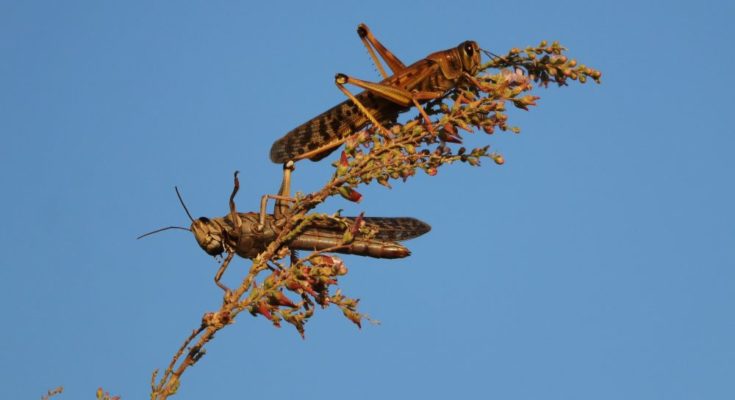CropLife India, an association of 15 R&D driven crop science companies; in view of recent locust attacks in the country has issued an advisory for farmers and spray management agencies to follow these recommendations for the management of the locust.
The advisory issued includes keeping information about the locust swarm’s attack in areas through radio, TV, newspapers and mobile, among other tools. In order to protect the crops, spray Neem oil, 5 ml per litre of water in solution; when the locust swarms attack in other areas is reported. Making noise in the fields or produce loud noises in the form of vehicles, bells, tins, thali or other ways, which would keep the locust swarms away.
CropLife India has suggested to use FAO (Food and Agriculture Organization of United Nations) recommended chemicals, which have been also approved by the Registration Committee, for the control of Desert Locust in the states. The spraying should be conducted in such a way that there is no contamination of water either in ponds, river, water reservoirs, and other water bodies.
Asitava Sen, Chief Executive Officer, CropLife India said, “Currently, there is an extensive invasion of the desert locust in our country. The locust swarms have entered the border of Madhya Pradesh and Uttar Pradesh at present, passing through Rajasthan, Gujarat, Haryana and Punjab. Therefore, locusts can pose a serious challenge to agriculture sector growth — projected at 2.5-3 percent over last year — in the midst of COVID-19 pandemic, unless further escalation is contained. We commend the concerted efforts of the Centre and state governments in controlling the locust menace, including use of novel modern technology and spraying devices.”
“Apart from the traditional spray system, CropLife India has suggested extensive use of drones for spraying recommended agrochemicals to control locust and other invasive pests. The main benefits of drones –that can be remotely controlled – are increased efficiency and precision of agrochemical application that, in turn, leads to improved pest management and reduce wastage of crop protection products; higher capacity of spraying — about 20 times higher compared to that of manual spraying; significant reduction in risk of operator exposure; lower water consumption and development of certified applicators, including community spraying professionals, thereby creating new skilled employment and entrepreneurship potential in rural India.,” Sen added.
CropLife India issues advisory on locust control

Apart from the traditional spray system, CropLife India has suggested extensive use of drones for spraying recommended agrochemicals to control locust and other invasive pests




